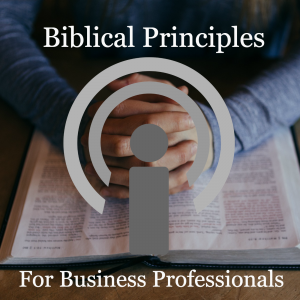Biblical Brinciples for Business Professionals

Whatever Bytes - Biblical Principles for Business Professionals
Finally, brothers, whatever is true, whatever is honorable, whatever is right, whatever is pure, whatever is lovely, whatever is of good repute, if anything is excellent or worthy of praise, think on these things. — Philippians 4:8.
We continue in our “Whatever” series. So far, we looked at a couple other “whatever” verses:
1 Corinthians 10:31: “Whatever you do, do all to the glory of God.”
Colossians 3:23: “Whatever you do, do your work heartily, as for the Lord rather than for men” (NASV).
Something to Think About
In Philippians 4:8, Paul mentions several “whatevers” on which we should think. About these things, Paul says, “think” or “dwell” on them.
What’s interesting about the Greek word used for “think,” or “dwell” in this verse comes from the word Logos, which the Gospel writer John uses when He says, “In the beginning was the Word, and the word was with God and the word was God.”
When Paul uses the word “think” in Philippians, it means to “take into account,” “reckon,” or “reason to a logical conclusion.” Therefore, when we “think” about, or “dwell on” something in this sense, it means that we are to reach a logical conclusion concerning those excellent things. We consider whatever is true, honorable, right, pure, lovely, admirable, excellent, praiseworthy.
Computer Brains: Garbage In, Garbage Out
Consider the lyrics to Petra’s song, Computer Brains: “Everything that you do and see, one more event in your memory. Every bit takes another byte without control over wrong or right. You must screen every entry made, the consequences must be weighed. The only way to security is every thought in captivity. . . Computer brains, put garbage in; Computer brains, get garbage out. Computer brains, programming you. . .”
The lyrics most likely reference 2 Corinthians 10:5, “We destroy arguments and every lofty opinion raised against the knowledge of God, and take every thought captive to obey Christ” (ESV).
Our brains are like computers. You put garbage in, you get garbage out. Everything we put into our minds, whether those things are pure, or whether they are are garbage, is programming us. When you think on those things which are true, honorable, right, pure, lovely, admirable, excellent, praiseworthy, you are putting great things in your mind, and your actions will reflect those things. The output is positive, uplifting, and God-honoring.
Here are some questions to ask yourself:
* What am I putting in my mind? How am I programming myself?
* Am I thinking/dwelling on what is true, honorable, right, and pure?
* Am I programming my mind to think pure thoughts or am I inputting garbage?
* Are my thoughts and actions toward others, whether in the workplace or in other situations, positive and uplifting or are they destructive?
The main purpose of this podcast/blog is to bring to light Biblical Principles for marketplace missionaries — principles that will help improve our character. When we think/reflect/dwell upon those things that are excellent or praiseworthy, our actions follow. We must first be concerned with our character. Knowing this, we dwell on those things that make us become more of what God wants us to become and to do those things God wants us to do. We’re to develop a mindset that is more like Christ.
Today’s Takeaway: When looking at Philippians 4:8, we see a list of “whatevers” to ponder. At the end of the verse, Paul says “if anything is excellent or praiseworthy – think about such things” (NIV). This suggests that there are many excellent things to ponder that are not mentioned in the verse. The idea is to be constantly thinking about the many excellent principles found in Scripture.
In the next blog/podcast episode, we will look at the first “whatever” of Philippians 4:8: Whatever is true.






 Visit Podcast Website
Visit Podcast Website RSS Podcast Feed
RSS Podcast Feed Subscribe
Subscribe
 Add to MyCast
Add to MyCast